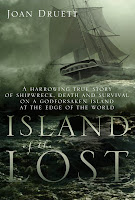
50 crime writers to read before you die
From G K Chesterton to Elmore Leonard, The Daily Telegraph presents a list of of its favourite crime writers of all time
From G K Chesterton to Elmore Leonard, The Daily Telegraph presents a list of of its favourite crime writers of all time
After a debate that left senior members of the Telegraph's literary staff with pulled hair, black eyes and, in one case, an infected bite, we this week present our list of the 50 great crime writers of all time.
We present them in no particular order, and make no apology for our omissions. But we would like to know what you think. Should Ellery Queen have been two of the names on the list?
We present them in no particular order, and make no apology for our omissions. But we would like to know what you think. Should Ellery Queen have been two of the names on the list?
We wanted to compile a list of writers we had, jointly and severally, loved. We wanted to include writers like Dash Hammett, who brought something new and exciting to the genre; like Elmore Leonard, who turns an old trick in it with incomparable style; and like Poe, who invented it. We did not, except incidentally, take into account popularity.
Who, we asked ourselves finally, are the crime writers who can actually write? We believe any serious reader will profit from acquaintance with any of the writers on this list.
And, just because we love you, as a bonus 51st entry we interview Robert B Parker - an unrivalled pulp stylist who may be the best crime writer you've never read.
And, just because we love you, as a bonus 51st entry we interview Robert B Parker - an unrivalled pulp stylist who may be the best crime writer you've never read.
GK Chesterton 1874-1936The most fluent journalist of his generation, Gilbert Keith Chesterton was also a master of the detective story. Father Brown - his sceptical and worldly-wise priest - featured in dozens of exquisite entertainments. Settle into a comfy chair and enjoy. SL Read: The Complete Father Brown (1986)
Arthur Conan Doyle 1859-1930 Conan Doyle's pipe-smoking detective is so well known that Sherlock has become a synonym for sleuth. He never said the catchphrase; the illustrator gave him the hat; continuity errors abound… but he's brilliant. SL Read: The Hound of the Baskervilles (1902)
Edgar Allan Poe 1809-1849 Poe was a man of formidable talents - not least of which, sadly, was drinking himself to death. Before that, though, he gave us fiction's first detective, in Auguste Dupin, and hairiest murderer, in an orang-utan. SL Read: The Murders in the Rue Morgue (1841)
Ed McBain 1926-2005 As well as writing the script for Hitchcock's The Birds, McBain (real name: Evan Hunter) more or less invented the police procedural. The detectives of Isola's 87th Precinct wise-cracked for half a century, and their spare style was the prime influence on Hill Street Blues. SL Read: King's Ransom (2003)
Kyril Bonfiglioli 1929-85 A raffish former art dealer, Bonfiglioli created - in Charlie Mortdecai - an antihero (also a raffish art dealer) of irresistible charm. Charlie has the manner of a demented Bertie Wooster and the morals of a polecat. Great titles, too. SL Read: The Mortdecai Trilogy (1991)
James Ellroy 1948- Ellroy's labyrinthine novels chart a West Coast underworld of corruption and evil, played out against real historical events. Bent cops, nightsticks, psychopaths and seductresses. Makes The Silence of the Lambs resemble a vicar's tea party. SL Read: The Black Dahlia (1987)
Janwillem van der Wetering 1931-The capers of Grijpstra and de Gier, aka The Amsterdam Cops, are oddly appealing. One plays the drums; the other the flute. They frequent canals. There's a cat. Unique and very Dutch. SL Read: Outsider in Amsterdam (1975)
Carl Hiaasen 1953- A master of the comic crime novel, Hiaasen patrols Florida's Everglades. His villains are big business, petty crims and That Mouse. Skink, a feral former Florida governor who lives off roadkill, often features. SL Read: Double Whammy (1987)
Dashiell Hammett 1894-1961
It’s a cinch to argue that Hammett was the most influential stylist of the past century and probably the father of the modern literary novel. After honing his style on pulp magazines, he famously proved that high literary art was not only possible, but best achieved, through spare rather than florid or heavily mannered prose.
He influenced Raymond Chandler, who then inspired generations of writers to explore the lyrical possibilities of laconic, muscular writing while instinctively rejecting popular pre-Hammett styles as dull or overwrought. Hammett created revolutionary models for the morally ambiguous hero (Sam Spade) and the equal partnership of modern marriage (Nick and Nora Charles) now so universal that we have forgotten our debt to him.
He influenced Raymond Chandler, who then inspired generations of writers to explore the lyrical possibilities of laconic, muscular writing while instinctively rejecting popular pre-Hammett styles as dull or overwrought. Hammett created revolutionary models for the morally ambiguous hero (Sam Spade) and the equal partnership of modern marriage (Nick and Nora Charles) now so universal that we have forgotten our debt to him.

































